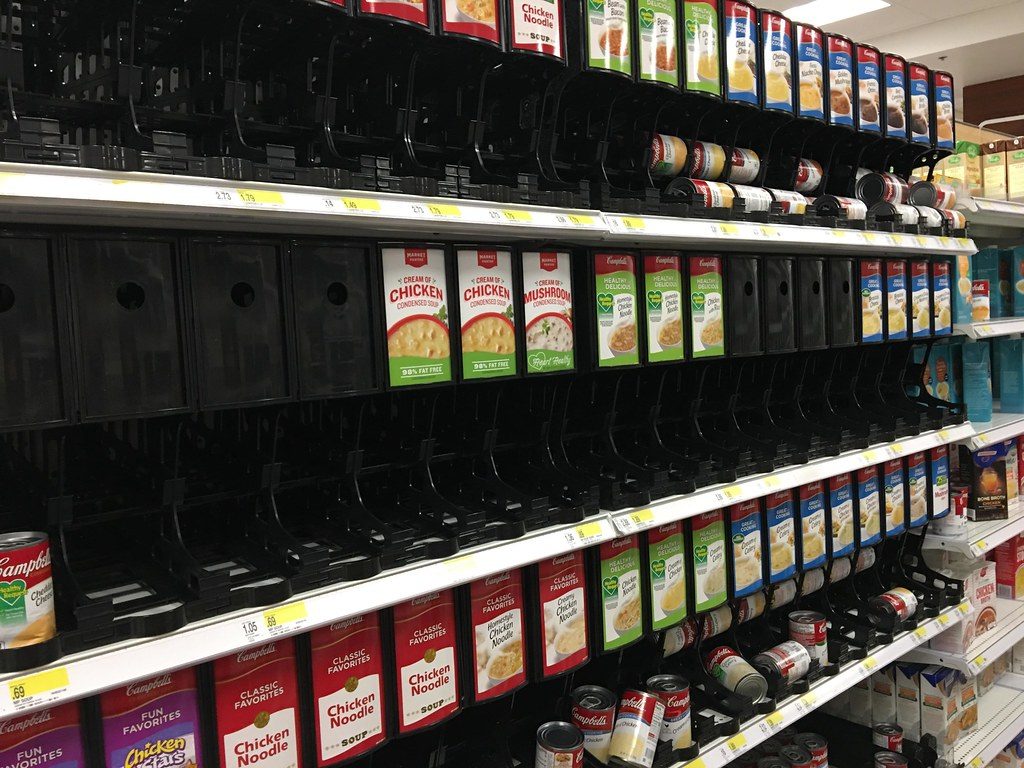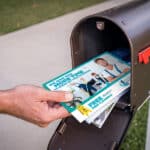
We’ve all been there – you head to the store to take advantage of a good deal, and the shelves are already empty by the time you arrive. Sometimes, that can even happen when an item isn’t on sale, when something on your shopping list just randomly isn’t available that day.
So what do you do? You essentially have three choices. You can buy a different product or brand, which benefits the store, since it’s still making a sale, but harms the manufacturer of your preferred brand. You can get your item somewhere else, which benefits the brand but harms the store. Or you can come back and hope the item is back in stock another time, which benefits the brand and the store, but is pretty inconvenient for you.
The authors of a new study looked into which scenario is most likely to happen – and what they found isn’t good news for retailers that can’t seem to keep their shelves stocked.
“Response to Stockout in Grocery Stores” is due to be published in an upcoming edition of the Journal of Retailing and Consumer Services. “Evidence suggests that around 8% of a typical grocery store’s items are out of stock on a given afternoon,” the authors write. Everyone stands to lose when this happens, but the researchers found that retailers fare the worst.
The researchers surveyed grocery shoppers in “a small Australian city”, where an ALDI recently opened not far from three larger, established grocery stores. They note that a common assumption is that shoppers faced with an out-of-stock situation are more likely to switch brands than switch stores. But their study found otherwise.
They discovered that more shoppers were willing to switch stores to get exactly what they want, when their preferred store didn’t have it. And that propensity increased after the ALDI opened.
That makes sense, since “opportunity cost of time is a likely driver of out-of-stock response,” the study found. If there’s a convenient, low-priced store nearby that might carry the product you want, it won’t require too much effort on your part to swing by and get it, instead of settling for something different at your preferred store.
Among the most likely to switch stores instead of switching brands are older shoppers, who “have spare time to shop at multiple stores” and have developed long-standing loyalty to their preferred brands. Also among the store-switchers are price-conscious customers, who tend to display “adherence to a particular price range rather than to a particular supermarket or brand”.
Even so-called “loyal” shoppers are likely to switch stores if they can’t find what they want at their preferred store. “It is notable that participation in loyalty programs appears to have little effect on shoppers’ out-of-stock responses,” the report found. “Although this higher probability of store switching by ‘store loyal’ customers appears counterintuitive, a possible explanation is that such customers feel more frustrated and irritated by out-of-stocks than do other customers and so seek to penalize their retailer.”
Many manufacturers in recent years have added limits to how many of their coupons can be used at once, with the stated purpose of ensuring that there’s plenty of supply for other shoppers. One of the unstated purposes is that they don’t want to turn off shoppers who find an empty shelf, and lose a potential customer. But this study suggests that may not be entirely necessary, because shoppers are more likely to seek out the product somewhere else, ensuring that the manufacturer still makes the sale.
“The cost of out-of-stocks is higher for retailers than it is for manufacturers,” the report declares. “The negative consequences for retailers could be even more serious if customers switch to a competing store permanently or for a larger proportion of regular food purchases.”
Since some out-of-stocks may be inevitable, the study concludes with some suggestions. Retailers can make sure they’re “more attractive in terms of prices”, so shoppers who know that other stores charge more for the same product, won’t be tempted to go there instead. And retailers can improve the quality and marketing of their store-brand products, so shoppers who can’t find the brand they want, might try the store’s brand instead.
In the end, out-of-stocks are best avoided, since they aren’t ideal for anyone. Retailers stand to lose if you switch stores, manufacturers lose if you switch brands, and you lose when you can’t get what you want, or have to go somewhere else to find it. Ultimately, whoever got there before you and cleared that shelf, may end up the only winner.











Missing is the fourth choice for shoppers a rain check for the out of stock item. I get rain check regularly for out of stock items, especially if I have a coupon for my preferred item.